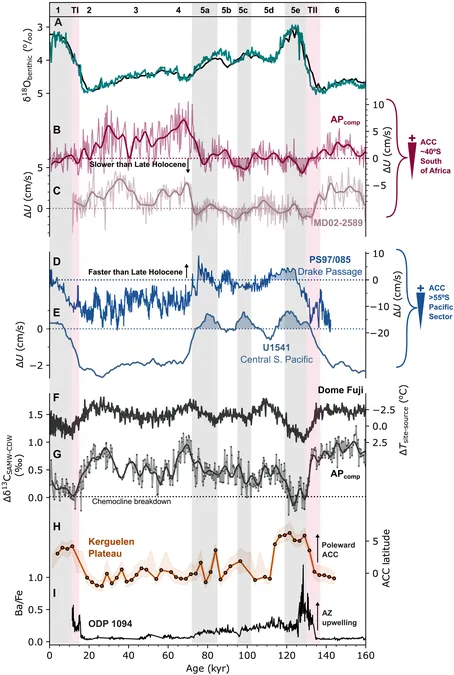
Breakthrough in Bladder Cancer Treatment: The Promise of HMBD-001
2025-01-03
Author: Ming
Introduction
Exciting developments are emerging from The Christie Hospital in Manchester, where a groundbreaking study is shining a light on HMBD-001, a new investigational treatment for bladder cancer, specifically urothelial carcinoma, the most prevalent type of this disease.
About HMBD-001
HMBD-001 is an anti-HER3 monoclonal antibody being developed by Hummingbird Biosciences, based in Houston, Texas. This cutting-edge medication is a targeted chemotherapy agent that identifies and binds to a specific protein on the surface of certain tumor cells, potentially improving treatment efficacy.
The Clinical Trial
The Phase I/II trial (NCT05057013), sponsored by Cancer Research UK, aims to determine the optimal dosage of HMBD-001, either as a standalone treatment or in conjunction with other anti-cancer drugs. The trial is also shedding light on the drug's side effects and its pharmacokinetics—how HMBD-001 behaves in the body and its effects on cancer cells.
Promising Preliminary Results
Recent reports from The Christie indicate promising preliminary results, particularly from the dose escalation part A of the trial. One poignant example is 53-year-old patient Paul Simmonite from Trawden, UK, whose bladder cancer had continued to progress following chemotherapy and immunotherapy. Remarkably, after receiving HMBD-001 intravenously each week, Paul experienced a reduction of over 60% in liver metastases. Additional treatment with radiotherapy resulted in the tumor in his lymph node shrinking to nearly undetectable levels on scans.
Expert Insights
Dr. Louise Carter, a consultant oncologist leading the clinical trial at The Christie, expressed optimism regarding these initial findings. "This clinical trial indicates that this new experimental drug could deliver promising results for bladder cancer patients, and potentially for other cancers," she noted, adding that nearly half of the participating patients reported benefits from the treatment with minimal side effects. However, she emphasized the need for larger studies to confirm these exciting outcomes, with plans to expand HMBD-001’s investigation into other forms of cancer, including breast and lung cancer, in the near future.
Broader Impact and Future Plans
In addition to The Christie, this important clinical trial is also being conducted at key locations including the Royal Marsden Hospital in London, Freeman Hospital in Newcastle, and the Churchill Hospital in Oxford.
Bladder Cancer Overview
Bladder cancer is a significant public health concern, ranking as the 11th most common cancer in the UK, accounting for 3% of all new cancer diagnoses between 2017 and 2019. According to GlobalData, it stands as the ninth most common form globally, with urothelial carcinoma representing about 90% of all bladder cancer cases.
Statistics and Trends
GlobalData recently reported that in major markets, including the US, UK, and various European countries, there were over 279,000 new bladder cancer diagnoses in 2023 alone, and those numbers are expected to grow at an annual rate of over 2% through 2033.
The Future of Cancer Treatment
The future appears bright for immuno-oncology and cancer therapeutics, as recent surveys reflect a robust pipeline of innovation within the sector. Notable advancements in immunotherapy—like checkpoint inhibitors, CAR-T cell therapies, and cancer vaccines—are transforming treatment protocols, paving the way for more personalized and effective therapies.
Market Research Insights
Urte Jakimaviciute, senior director of GlobalData's market research, highlighted that with many cancer indications currently lacking effective treatments, the demand for innovation in immuno-oncology continues to drive the development of novel therapeutics and technologies.
Conclusion
Stay tuned as these exciting developments in cancer treatment unfold—HMBD-001 could be a game-changer in the fight against bladder cancer and beyond!




 Brasil (PT)
Brasil (PT)
 Canada (EN)
Canada (EN)
 Chile (ES)
Chile (ES)
 España (ES)
España (ES)
 France (FR)
France (FR)
 Hong Kong (EN)
Hong Kong (EN)
 Italia (IT)
Italia (IT)
 日本 (JA)
日本 (JA)
 Magyarország (HU)
Magyarország (HU)
 Norge (NO)
Norge (NO)
 Polska (PL)
Polska (PL)
 Schweiz (DE)
Schweiz (DE)
 Singapore (EN)
Singapore (EN)
 Sverige (SV)
Sverige (SV)
 Suomi (FI)
Suomi (FI)
 Türkiye (TR)
Türkiye (TR)